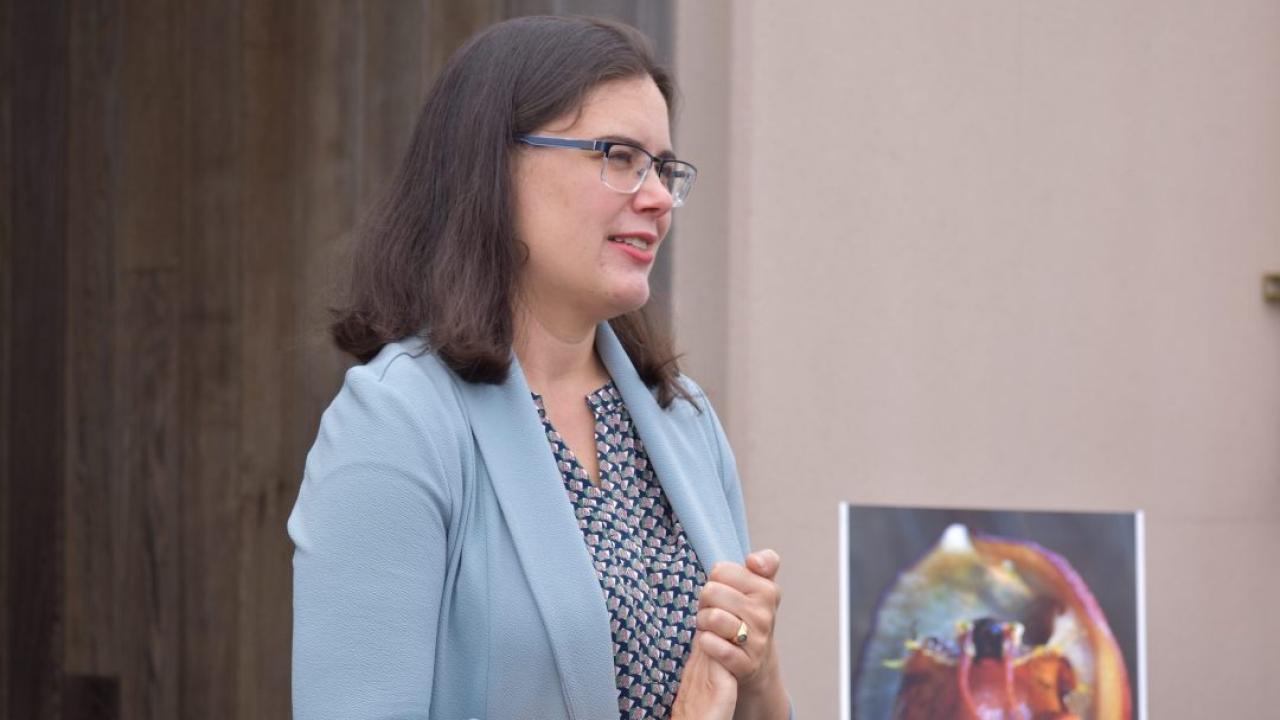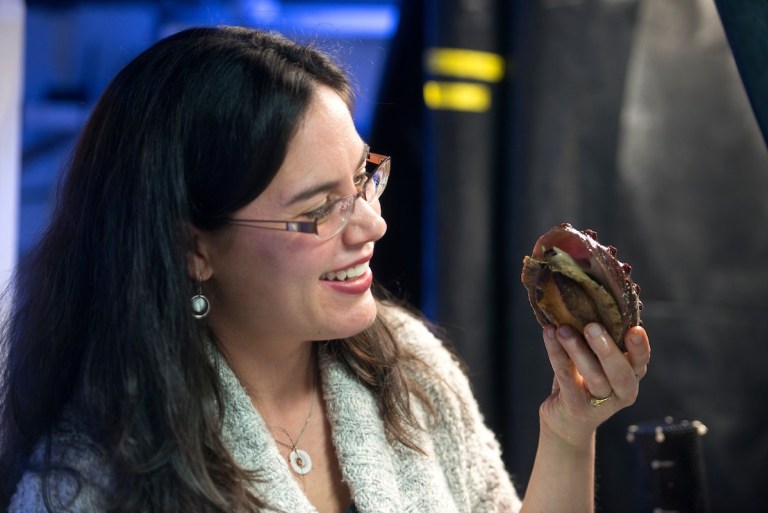
In Major Milestone, Endangered White Abalone ‘Graduate’
By Ellen Caminiti
With tears in her eyes, Kristin Aquilino stood outside the UC Davis Bodega Marine Laboratory in late August to give a commencement speech. She offered words of encouragement and thanks to a crowd of people who had supported the graduates throughout the years. The people stood hushed, clinging on every word, as they knew this was a momentous occasion that marked a future of hope.
The graduates are the first group of captive-bred white abalone to leave the comforting “nest” that lead scientist Aquilino and her team have created. They are leaving this safety net to pursue their dreams of living and breeding in the natural world, possibly as soon as this fall or winter. The abalone are now being staged for outplanting in a facility in southern California — a grad school of sorts — to better prepare them for life in the wild.
This marks a major milestone in the history of endangered white abalone recovery.
A wild comeback
The white abalone species have been fighting for survival since the glory days of Led Zeppelin. In the 1970s, due to the popularity of their tender meat, overfishing led to the near extinction of these “zambones of the sea floor,” as Aquilino calls them. In 2001, the species was put on the Endangered Species List.
For the past several years, Aquilino has directed the white abalone captive breeding program at UC Davis in close coordination with the National Oceanic and Atmospheric Administration (NOAA) Fisheries and the California Department of Fish and Wildlife. A consortium of more than a dozen agencies have been working together to raise and spawn captive white abalone with the hopes of one day returning their populations to the wild.
Now, that day is closer than ever.

Web of life
After much care and nourishment, the team’s efforts have resulted in about 3,000 white abalone, ready for life in the ocean. The goal, Aquilino said, is to repopulate wild populations and restore the cultural, economic and environmental value the white abalone provide.
Similar to most college graduation ceremonies, people with close connections to the graduates gave commemorative speeches. This included Suki Waters of the Kashia Pomo people, who recited the White Abalone prayer. The prayer has been guiding the white abalone recovery work for years.
“Thank you for sharing your lives in giving to the web of life in our seas,” Waters said. “We thank you for sharing your lives that touch our shores. We thank you for giving so much to the lives of our own ancestors and for giving so much to each of us today.”
Jacquelyn Ross of the Pomo and Coast Miwok people and a UC Davis undergraduate admissions officer, spoke words of thanks, congratulations and hope. Through song, L. Frank of the Tongva-Ajachmem people encouraged the abalone to be fearless in their pursuit of saving their species.

‘You are the future of your species’
As this first cohort of abalone graduates were being loaded into coolers and vans for their journey south, friends, family, faculty and community members reminisced about the past eight years with the white abalone program. They shared stories of hard work, innovation and resiliency, as Aquilino’s final parting words hung in the air:
“With the deepest sense of gratitude we wish you the best on your long journey home. Enjoy the new smells and ocean swells, find a nice crevice with good friends, good food and a romantic atmosphere …You are the future of your species. You are the future of our species. Farewell white abalone. This little blue planet is a better place with you in it.”